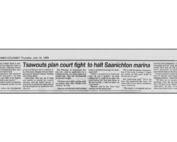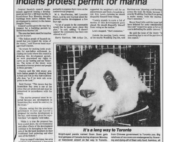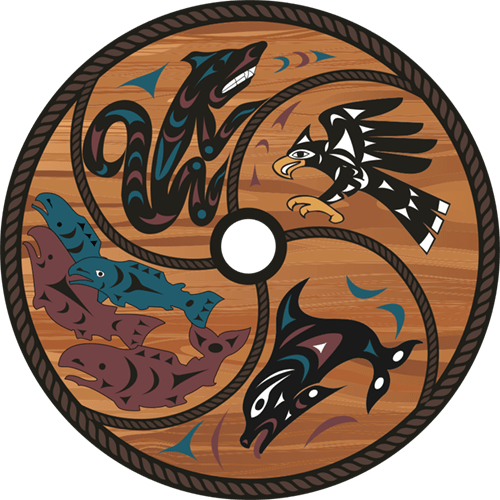You asked, we answered.
We are committed to transparency and accountability to the communities we serve. We noticed many of you had similar questions and concerns about our governance structure, relationship with each Chief and Council, our mandate and our contingency plans for dissolution.
We hope to answer these questions with the answers below. If not, please feel free to give us feedback so we can improve.
What is the W̱SÁNEĆ Leadership Council (WLC) mandate and where did it come from?
The W̱SÁNEĆ Leadership Council (W̱LC) is currently comprised of Tsartlip, Tseycum and Tsawout. The Chief and one Councillor of each of the bands (6) form the Board of Directors (BOD). W̱LC’s mandate was developed by the Chiefs and Councillors of the contributing Nations in order to discuss common issues and collaborate on finding solutions, such as, reaffirming and strengthening W̱SÁNEĆ Douglas Treaty rights.
You can read the full mandate here.
Why is the W̱SÁNEĆ Leadership Council a provincially registered society? Doesn’t that compromise the ability to act on a Federal Level?
The WLC acknowledges that there are problems associated with Provincial registration. That being said, the decision to register Provincially was carefully considered and it is quite common for First Nation communities to form entities under the BC Societies Act as it gives the ability to administer work agreed upon by multiple communities. A few examples are; CSETS, NILTUO, South Island Wellness, UBCIC, the office of the WETSEWETEN
There are several benefits to Provincial registration that align with our strategy to achieve our mandate.
Being registered as a society opens the W̱SÁNEĆ Leadership Council up to apply to and receive grants and bursaries that would not otherwise be available. This registration type also opens us up to receive legal protections. Even though we are a provincial entity, we are not a provincial table and coming together in this way has improved W̱SÁNEĆ’s ability to engage at the Federal level. These are the main two strategic reasons for registering as a society.
In certain areas, the Canadian Federal Government has delegated its authority to the Province. The Provincial Crown manages many activities within our territory, this management affects, and for the most part, is negligent to W̱SÁNEĆ rights. A failure to engage with the Provincial Crown compromises our ability to create solutions and act on opportunities.
Is the W̱SÁNEĆ Leadership Council doing work that our Chief and Councils should be doing?
As issues arise within W̱SÁNEĆ Territory that affect all of our community’s alike, individual band Council’s can choose to delegate these issues to the W̱SÁNEĆ Leadership Council in order to coordinate an approach. Any major decisions that are made are discussed and approved by the individual Nations before they go for WLC Board approval. The WLC convenes once per month to discuss items and monthly updates go out to each community’s Council. These issues are within the broader W̱SÁNEĆ territory and do not deal with, and are outside of band operations.
A few examples are; the Gulf Island National Park Reserve, the National Marine Conservation Area Proposal, operations and management of, the CRD, CVRD, BC Ferries, Municipalities, and the Victoria Airport Authority.
Generally speaking, the issues the W̱SÁNEĆ Leadership Council takes on enable each band to better focus on band operations, by providing an external resource that facilitates inter-band cooperation and communication.
By acting as a united body, we are better positioned to:
- Act together to address core territorial concerns
- Rebuild our W̱SÁNEĆ Nation with projects such as the reef net fishery
- Ensure opportunities are fairly distributed among Tsartlip, Tseycum and Tsawout.
What happens to the agreements W̱SÁNEĆ Leadership Council has signed if the W̱SÁNEĆ Leadership Council dissolves?
The terms of dissolution, have been pre-negotiated and are outlined in the society registration details, and each file would simply go back to being the responsibility of the Chief and Council and then be dealt with at a community level.
How are we doing? Give us your feedback so we can improve.






